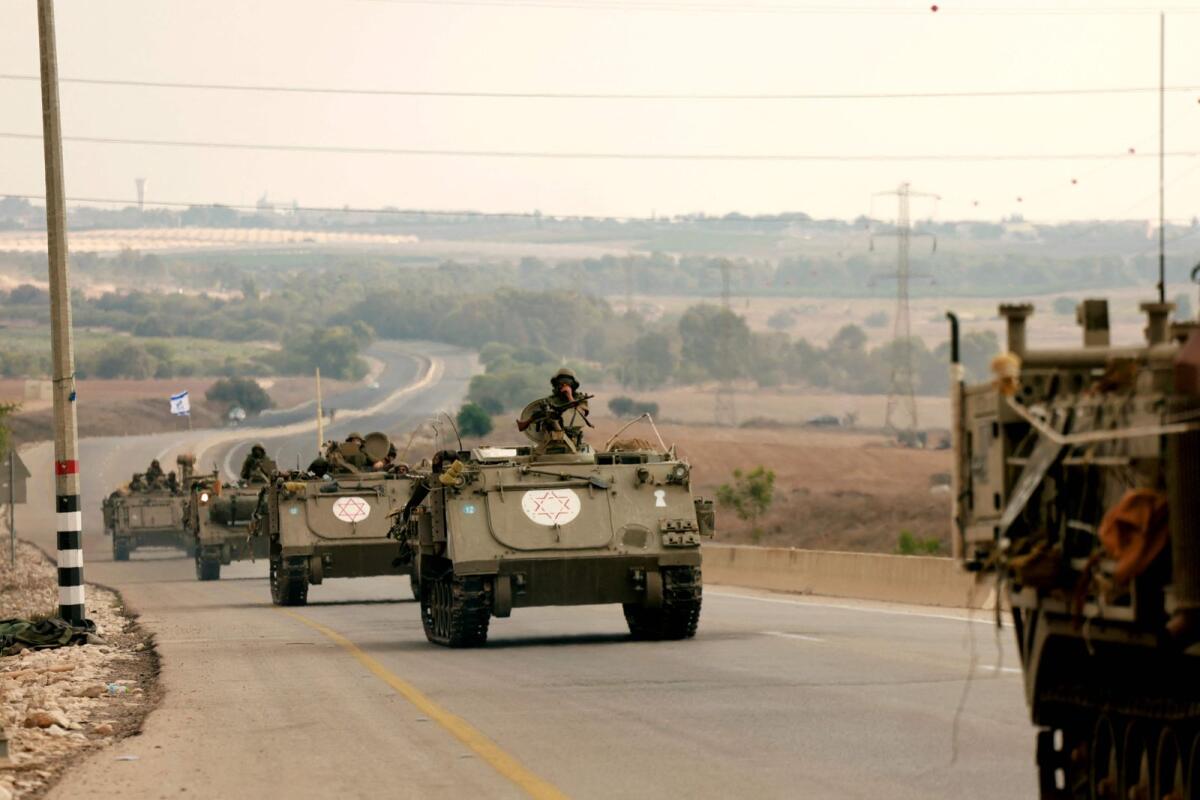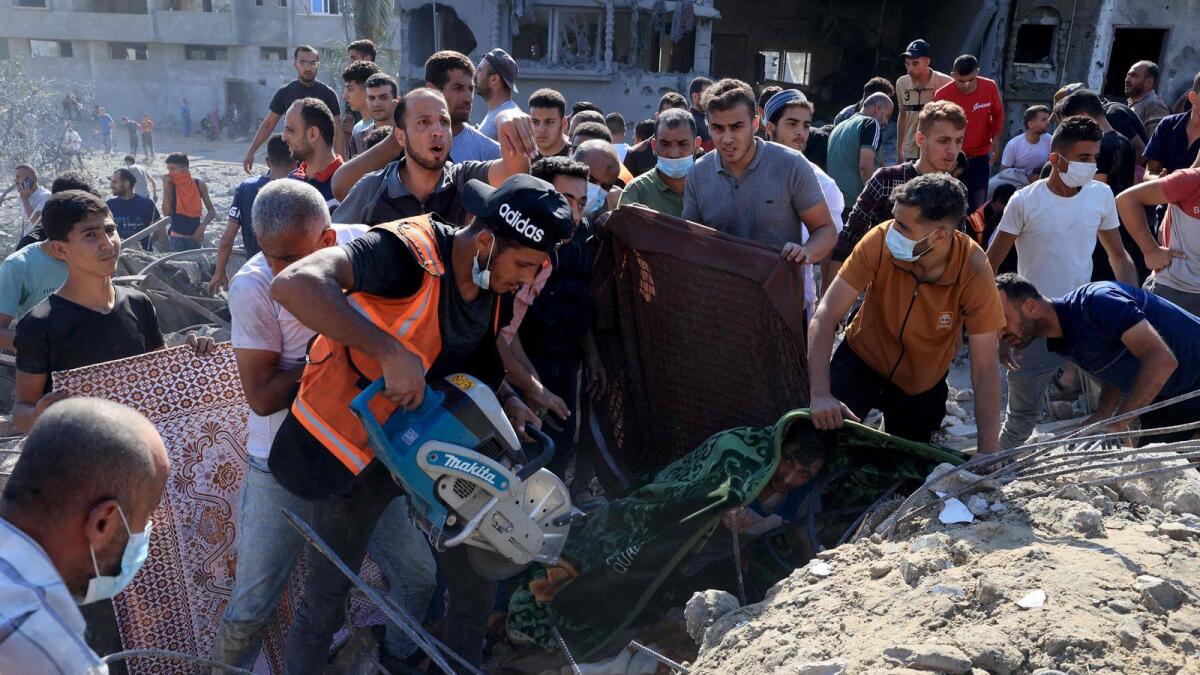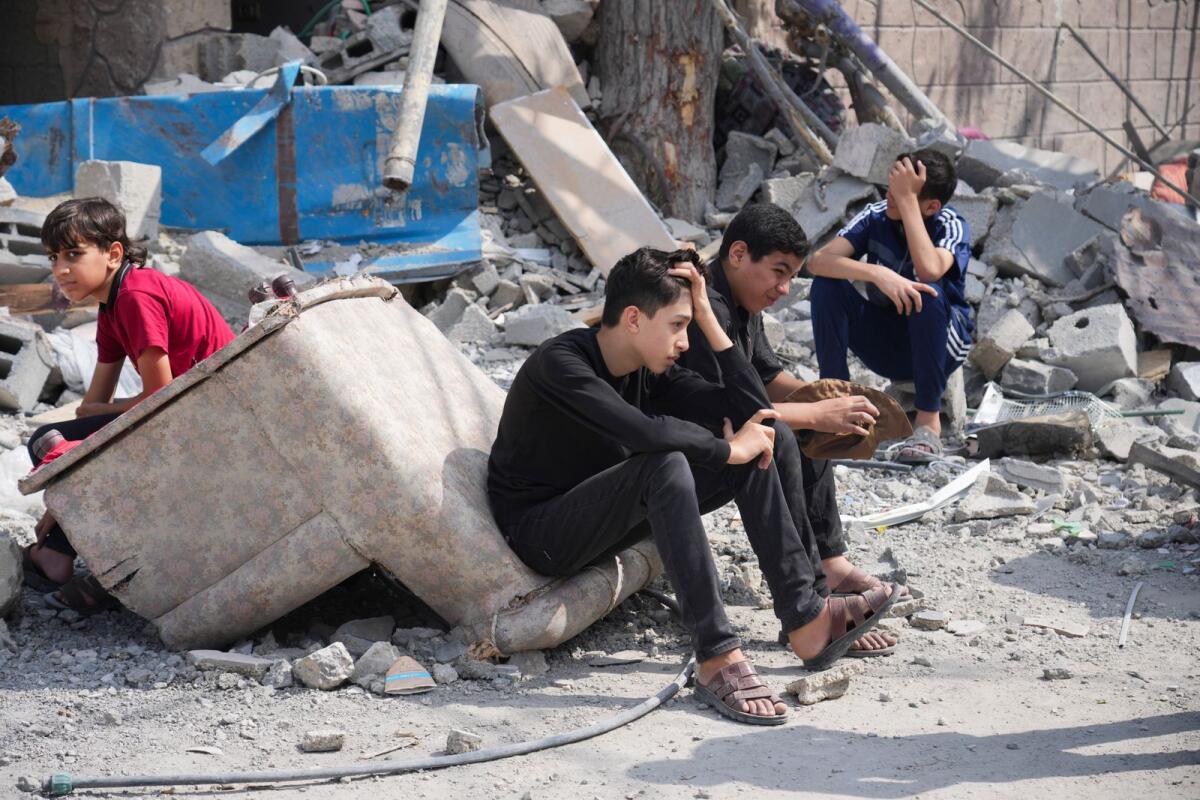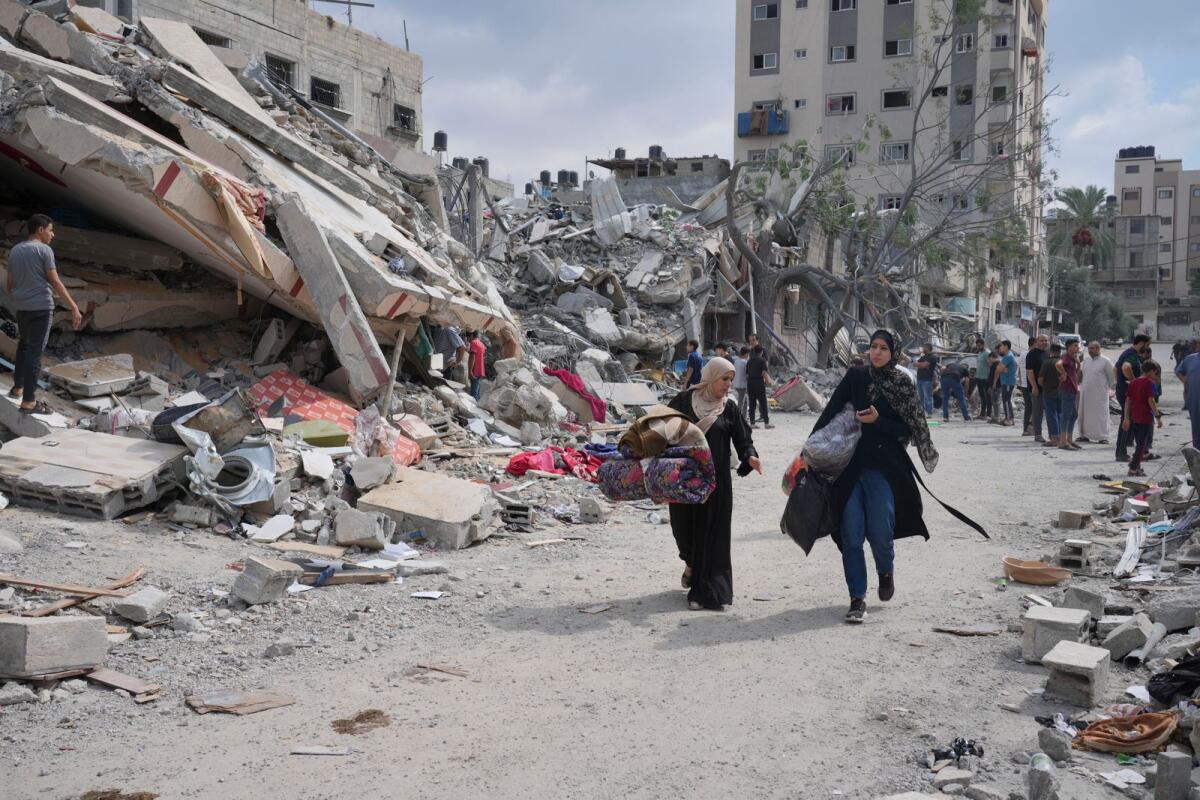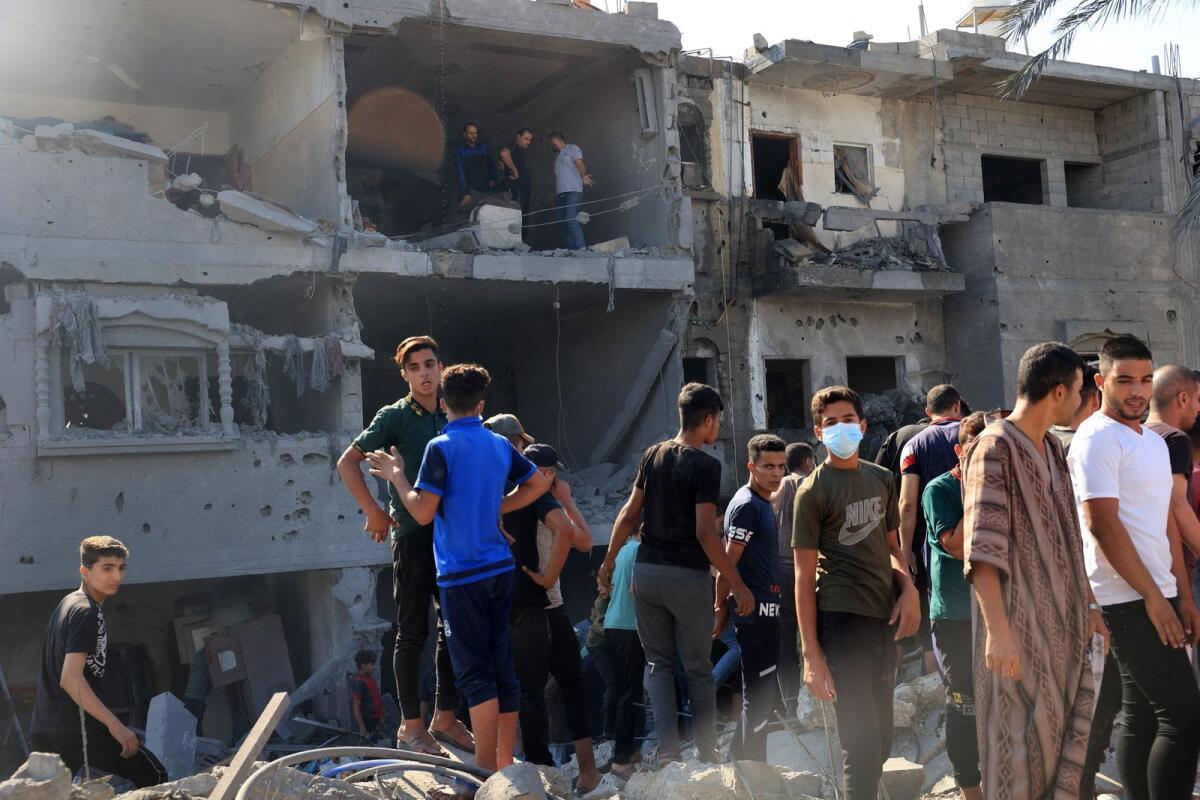Israel has denied a temporary truce to allow aid into Gaza or for foreigners to leave, as the desperation grows among millions of Palestinians trapped in the heavily bombarded enclave with limited access to food and water.
The situation is becoming increasingly dire, with no relief in sight for the beleaguered population. US Secretary of State Antony Blinken has returned to Israel, emphasizing the need to prevent civilian suffering during a looming ground offensive against Hamas in Gaza.
The conflict, marked by waves of fighting, has resulted in significant civilian casualties. Israel’s relentless bombing campaign has caused widespread destruction and loss of life. With Israeli troops gathered at the border, the decision to invade Gaza, where Hamas has an extensive network of tunnels, is complicated by the presence of 199 hostages held by the Islamists.
UN chief Antonio Guterres has warned that the entire region is on the brink of catastrophe, with cross-border fire escalating between Israel and the Iranian-backed Hezbollah group in Lebanon.
In Gaza, residents are experiencing panic, anger, and despair, with warnings from Israel to vacate the northern areas before the major offensive. However, the influx of people into the south is putting immense pressure on the region, as it has limited resources and no way to leave.
Israeli-controlled crossings are closed, and Egypt has also shut the Rafah border, effectively trapping Gazans. Any departure of Palestinians is a sensitive issue, with concerns about permanent expulsion.
Foreigners are hoping to leave through Rafah, but Israeli Prime Minister Benjamin Netanyahu’s office has dashed these hopes, stating that there is no ceasefire or humanitarian aid for Gaza in return for evacuating foreigners.
Horrifying testimonies and scenes of devastation have steeled Israel’s determination to eliminate Hamas. However, the situation has garnered international concern, and the conflict has the potential to escalate further, causing regional instability. The United States has sent two aircraft carriers to the eastern Mediterranean to deter further escalations.
The conflict has displaced a significant number of Palestinians, with many seeking refuge in overcrowded areas. The humanitarian situation is dire, with limited access to essential services, including water and power. Power outages are affecting crucial infrastructure, including desalination plants and hospitals, and everyday life is greatly disrupted.
The ongoing violence and human suffering have prompted calls for an immediate ceasefire and a political resolution to the conflict. The UN agency supporting Palestinian refugees has reported a significant number of displaced individuals, and the situation continues to worsen with no clear end in sight.
